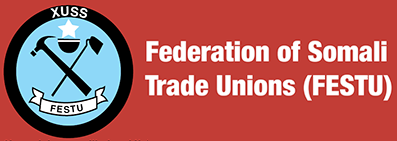As the United Nations has declared 2021 as the International Year for the Elimination of Child Labour, Confederazione Generale Italiana del Lavoro (CGIL) and the Federation of Somali Trade Unions (FESTU) applaud this clear global stance on the disturbing practice of child labour. This declaration is significant as it will accelerate progress towards the Sustainable Development Goal Target 8.7 – to end child labour in all its forms by 2025.
Both FESTU and CGIL have, for more than two years, collaborated for an end to child labour in Somalia. FESTU and CGIL, thanks to the operational support of Nexus Emilia Romagna, the NGO supported by the CGIL ER, have started a collaboration process for two years to eliminate child labour in Somalia. In particular, Nexus ER has implemented a project on “Protection of Somali children from the worst forms of exploitation of child labour” co-financed by the Otto per Mille 2018 of the Waldensian Table, to help further consolidate the country’s commitment to eliminate as soon as possible the phenomenon of child labour in Somalia, as envisaged by objective 8 “Decent work and economic growth” (target 8.7) of the 2030 Agenda for sustainable development in the towns of Mogadishu, Baidoa, Bossasso, Galkayo.
Despite commendable efforts of Somalia’s Ministry of Labour and Social Affairs on the development of Social Protection policy and National Employment Policy with strong provisions to eradicate child labour, anecdotal evidence suggests the practice remains stubbornly widespread.
In an example of the worst forms of child labour, children continue to fall victims to armed forces as they are recruited and used in armed conflict. The failure to establish a labour inspectorate has meant that child labour often goes unmonitored and unreported. Somali laws also have no adequate provisions for criminally prohibiting child trafficking for labour, commercial sexual exploitation, or the recruitment of minors by state and non-state armed groups.
Child labour presents the most serious form of interruption to a child’s natural physical, psychological and educational development. Child labourers, depending on the forms and severity of work they are exposed to, can suffer from long-term health problems due to malnutrition, exposure to chemicals, abuse, injuries, exhaustion, and psychological harm. Child labourers in almost every region of Somalia are also at an increased risk of mortality. Often, a child’s inability to complete their education puts them at a disadvantage in the job market later on, establishing a pattern for engaging in risky, dangerous and poorly-paid jobs.
Somalia’s social and economic development can never be sustainable and equitable if one of society’s most vulnerable groups is not protected. Child labour negatively impacts many of the rights found in the UN Convention on the Rights of the Child, including the right to education, the right to the best health care possible, clean water to drink, healthy food, a clean and safe environment to live in, and the right to be protected from all forms of exploitation.
As key stakeholders in the development of Somalia’s labour landscape, trade unions must be involved in efforts to combat the scourge of child labour. Using the spotlight offered by the UN’s declaration, FESTU and CGIL will build on their efforts in the past few years, with concrete plans to intensify and broaden their joint campaign work with targeted activities against child labour. This includes the domestication and effective implementation of the ILO Convention 182 on the Worst Forms of Child Labour, which Somalia ratified.
CGIL and FESTU will as always, in partnerships with ILO, continue to pursue this struggle to a logical conclusion by demanding respect for the rights of children and urging the Somali authorities to scale-up investment in child protection and child welfare.
Full Statement in Italian Language
